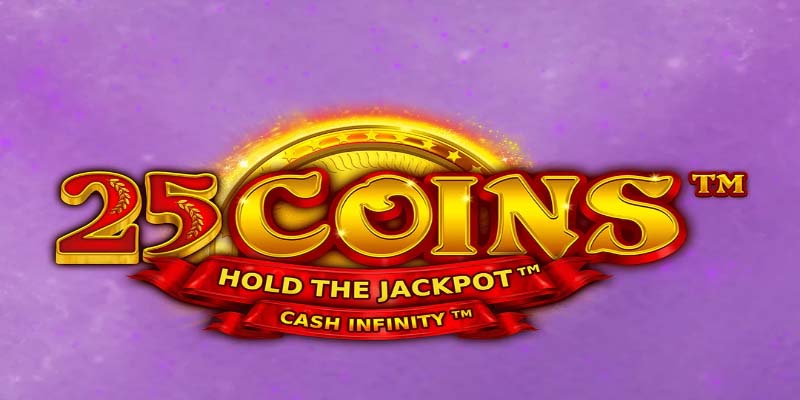
In recent years, the world has witnessed a significant shift towards digital currencies, leading to the emergence of countless options for investors and tech enthusiasts alike. Among these, 25 Coins have become a focal point for discussions surrounding cryptocurrencies and their implications for the future of finance. As we delve into this fascinating realm, we will explore the various types of coins, the benefits and risks associated with investing, and the future landscape of digital currency at https://vn88z.net/
Introduction to 25 Coins
The rise of cryptocurrency has transformed the way we perceive money. Traditional financial systems are being challenged by decentralized alternatives that promise transparency, security, and autonomy. In this environment, 25 Coins represent a diverse range of assets that individuals can invest in or use for transactions. Let’s unravel the foundations of what these coins are, their significance in our modern digital age, and why they are gaining traction among a wide array of investors.
Definition and Concept of Coins
Cryptocurrency can best be understood as a form of digital or virtual currency that uses cryptography for security. This technology ensures that transactions are secure, verifiable, and immutable. Unlike traditional currencies issued by governments (fiat), cryptocurrencies operate on decentralized networks based on blockchain technology.
Coins, within the context of cryptocurrency, refer to any digital asset created through a process called mining. These coins often serve different purposes, ranging from acting as mediums of exchange to providing access to decentralized applications. The term “coin” distinguishes these digital assets from tokens, which typically represent an underlying asset or utility within a specific platform.
Importance of Cryptocurrency in the Digital Age
As society becomes increasingly reliant on digital technology, the role of cryptocurrency is becoming more prominent. It offers several advantages over traditional forms of currency:
- Decentralization: Cryptocurrencies are not controlled by a single entity or government, ensuring greater autonomy for users.
- Security: Transactions are secured through cryptographic techniques, significantly reducing the risk of fraud or hacking.
- Global Access: Cryptocurrencies enable anyone with internet access to participate in the global economy, breaking down geographical barriers.
- Lower Transaction Costs: Crypto transactions can be executed with lower fees compared to traditional banking methods, making it attractive for cross-border transfers.
In this digital age, understanding 25 Coins and their unique attributes can empower individuals to take control of their financial futures while navigating the complexities of a rapidly evolving economic landscape.
Types of Coins
With thousands of cryptocurrencies available today, it’s essential to categorize and understand the various types of coins in circulation. Each coin carries its own set of features, use cases, and community support, which play crucial roles in their adoption and value.
Overview of Different Coins
When discussing 25 Coins, we encounter a variety of classifications:
- Bitcoin: Often referred to as the pioneer of cryptocurrencies, Bitcoin remains the most recognized and widely used coin globally. Its primary purpose is to serve as a decentralized digital currency.
- Altcoins: These are alternative coins to Bitcoin, encompassing a broad range of projects like Ethereum, which enables smart contracts, and Litecoin, designed for faster transaction times.
- Stablecoins: Pegged to tradable assets such as USD or gold, stablecoins aim to maintain a stable value, providing a safer option for those looking to reduce volatility.
- Utility Tokens: Used primarily within specific blockchain ecosystems, utility tokens grant holders access to certain services or products offered by the platform.
Identifying the purposes and functions of these various coins can help investors diversify their portfolios effectively.
How Each Coin Works
Each coin operates on distinct protocols and mechanisms:
- Bitcoin: Its proof-of-work consensus algorithm secures the network by requiring miners to solve complex mathematical problems, thus ensuring transaction integrity.
- Ethereum: Utilizing smart contracts, Ethereum allows developers to create decentralized applications (dApps) that run without the need for intermediaries.
- Litecoin: With a modified version of Bitcoin’s protocol, Litecoin processes transactions four times faster, making it ideal for smaller purchases.
- Tether (USDT): As one of the most popular stablecoins, Tether maintains its peg to the US dollar by holding reserves of traditional currencies, ensuring stability in turbulent market conditions.
Understanding how each coin functions at a technical level can greatly enhance investors’ appreciation and decision-making processes regarding 25 Coins and their respective roles in the broader ecosystem.
Conclusion
In conclusion, 25 Coins represent a compelling opportunity for investors seeking to navigate the complex world of digital currency. By understanding the various types of coins, their benefits and risks, and the mechanics of buying and storing them, individuals can take proactive steps toward building a diversified and profitable investment portfolio.






¡Hola cazadores de adrenalina !
Con un casino sin KYC puedes acceder desde tu paГs sin restricciones. No importa si estГЎ bloqueado por la DGOJ. AquГ mandas tГє.
Si te gustan las apuestas cripto, estos casinos son tu mejor opciГіn. Transacciones instantГЎneas y seguras. casinosinkyc.guru
casino sin registro sin subir documentos – п»їhttps://casinosinkyc.guru/
¡Que tengas maravillosas oportunidades excepcionales !